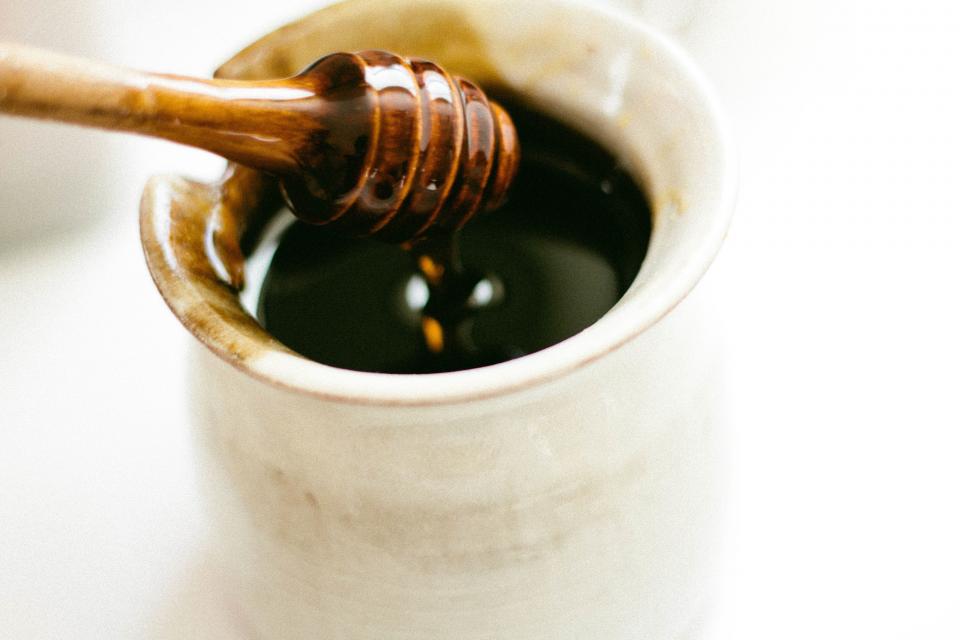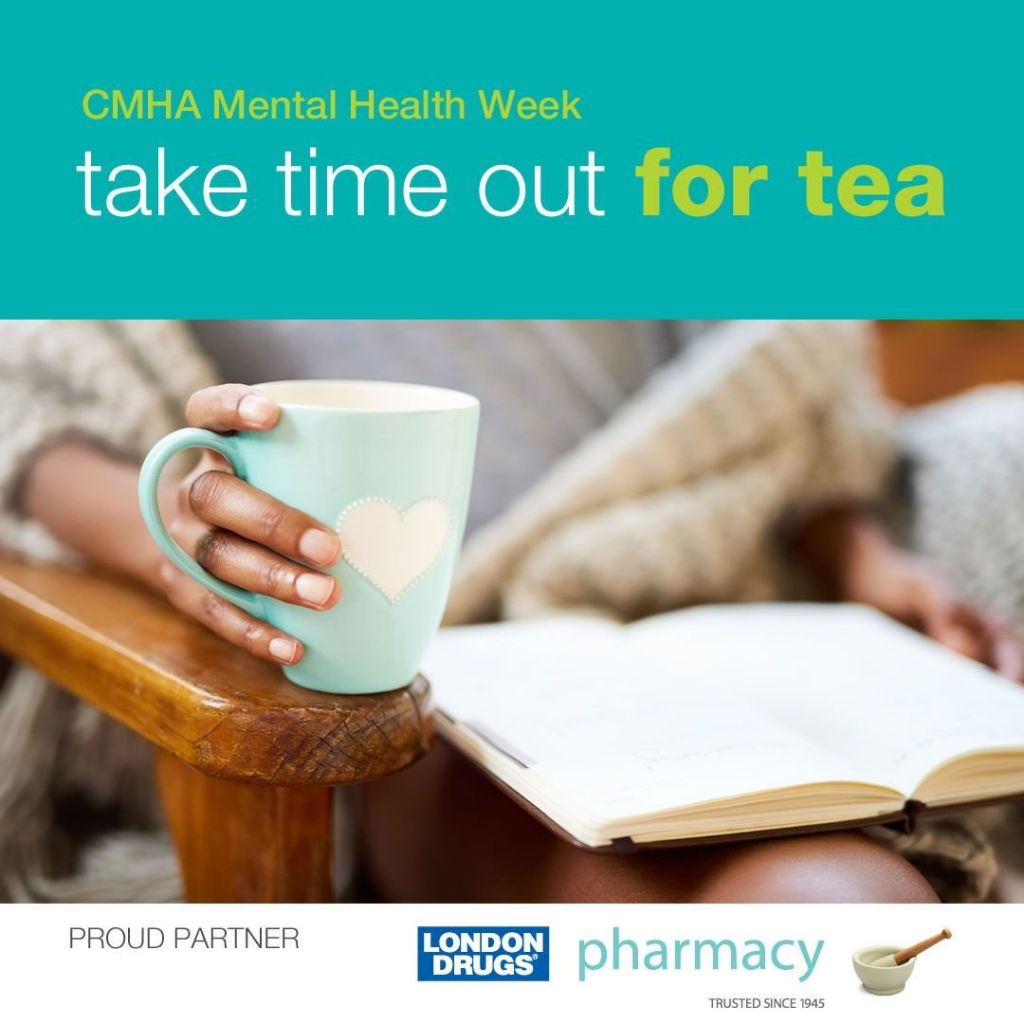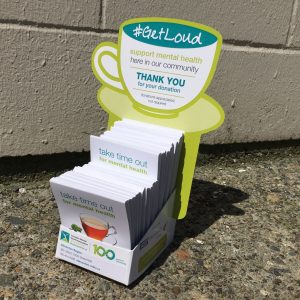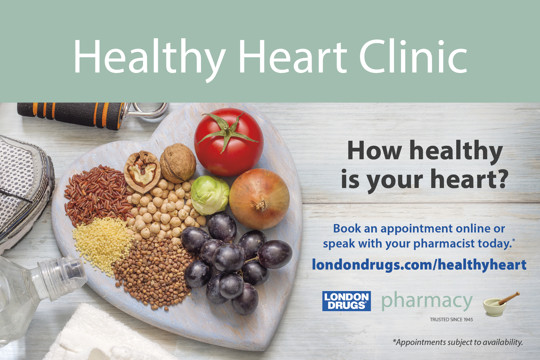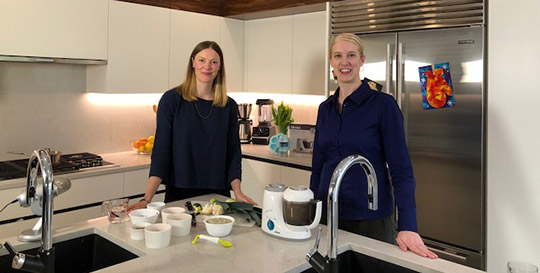
Introducing solid foods to your little one should be a fun and exciting adventure, but there are often many questions on how and when to take this step. By the time baby is ready for solid food, new parents have already researched so many other things…. strollers, car seats, sleep!
Earlier this month I partnered with London Drugs and Beaba to host a Facebook Live event and answer viewers questions about first foods for baby. I’m a holistic nutritionist and founder of Oh Baby Nutrition. I specialize in naturally nourishing pregnancy, postpartum, and starting solids with your baby. I love talking about feeding babies because you have such an amazing opportunity to help little ones establish healthy eating habits right from the beginning.
We covered quite a bit of important information in the Facebook event, such as…
When to start solids
During the event, I recommended to introduce first foods when baby is around 6 months, but also waiting until a few key developmental milestones have been met. Specifically that your baby can sit up unassisted, has lost the tongue-thrust reflex (does not automatically push solids out of their mouth with their tongue), and is ready and willing to chew.
Different methods of introducing solids
The two primary methods of introduction are spoon-feeding purees vs baby-led weaning. With baby-led weaning, you skip the purees and start with finger foods right away. These two methods do not have to be done exclusively and you can try a mix of both feeding styles with your little one. I’ve created a comprehensive guide to starting solids called Baby Knows Best that helps parents make an educated decision about the method that feels right for them and their babies. The Beaba Babycook that was featured in our Facebook event cooks both purees and finger foods.
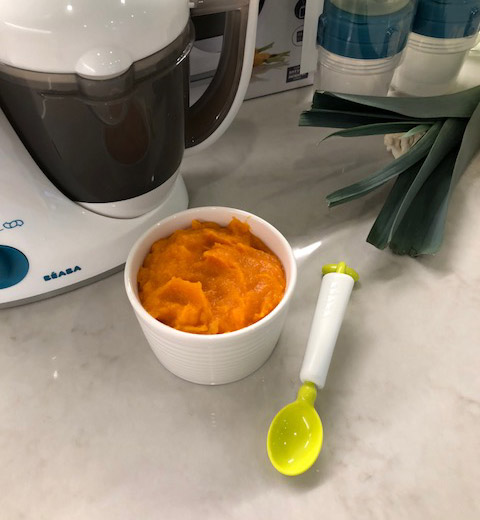
Finger foods: shape, size & texture
Whether starting with finger foods or introducing them after purees, it’s critical to understand the proper shape, size & texture for safety. Stick or finger shaped foods allows your baby to firmly hold the food in the palm of their hand and bite off little pieces, with or without teeth. It helps them learn how to chew, and learn how much food they can safely manage in their mouths. I’ve written more extensively about this here.
Best flavors to offer baby: sweet vs savoury
Parents are often concerned that offering sweet before savoury will cause babies to develop a sweet tooth. However, humans are naturally drawn to sweet flavours because in nature they represent energy dense, safe foods that are less likely to carry foodborne illness. Plus, breast milk (formula) is very sweet so they already have a taste for it. Initial introduction isn’t as important as making sure to include a variety of flavours in baby’s diet once they’ve started solids. Offering variety in a baby’s diet is also the best ways to avoid picky eating habits in toddlers.
How much food to feed baby
Each baby is different and the age at which they’ll be ready for more food will vary. So it’s recommended to watch your baby’s cues and follow their lead. Its best not to rush into things and only offer 1 serving a day for the first month or so, then build slowly from there.
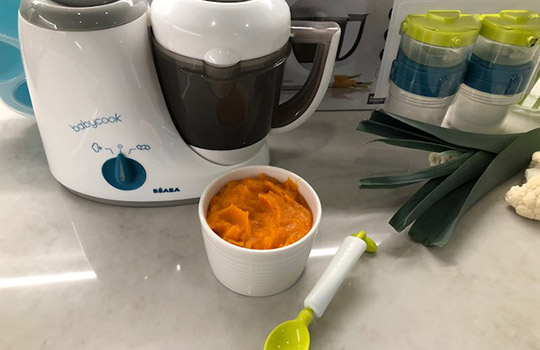
We also had some fantastic questions from viewers of our Facebook Live event, such as…
When you start to introduce solids does it take the place of a nursing feed?
When solid food is initially introduced, servings will be tiny and baby’s intake of breast milk should remain the same. As food intake slowly increases over time, breast milk consumption will naturally decrease and mother’s supply will adapt to the lessened demand. This exchange of breast milk for food should happen very gradually.
What would you recommend as a good first food to start your baby on?
I prefer fresh foods over packaged foods, and nutrient-dense foods over fortified foods. Some important nutrients for babies are iron, calcium, and DHA. In my guide to starting solids, I list all of my favorite foods, along with recipes and meal plans for various ages.
Is it ok to start babies on a full variety of mixed food from the very start or should you start with individual foods and then combine once we are sure they are ok to eat?
It was previously recommended to introduce new foods one at a time, waiting a few days between. However this advice has changed and now only applies to highly allergenic foods, such as cow’s milk, hen’s eggs, soy, wheat, nuts, sesame, shellfish and fish.
I have a very, very big baby so is it better to add water as opposed to breast milk to my baby food?
Breast milk is the most nutrient-dense sustenance for babies, so it’s not recommended to limit intake. However feel free to mix up the liquid you use to make purees, such as the water used to steam baby food, bone broth, coconut water, or even non-medicinal herbal tea.
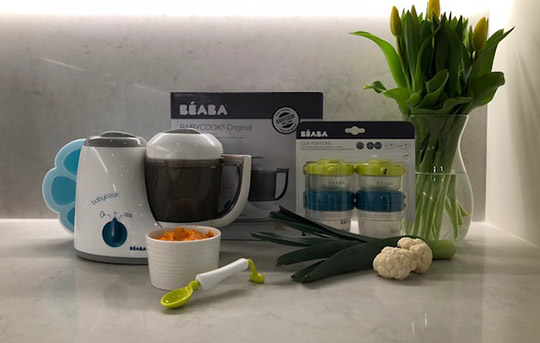
My baby is 8 months (I started solids at 6 months) and he still does not seem very interested in food. Is this uncommon?
Some babies take to solids right away, but it can definitely take others some time to show an interest. Let your baby lead the way and set the pace. It’s best not to try enticing them to consume more than they’re inclined too, so they can preserve their innate ability to self-regulate their appetite. However, I suggest talking with your health care provider if your baby isn’t taking to solids and is also exhibiting other developmental delays.
Is your little one ready to begin the adventure of first foods? My guide, Baby Knows Best includes a 4-part video series and 4 part-eBook series that will show you exactly how and when to take this exciting step. Baby Knows Best will answer all of your questions, eliminate your doubts, and allow you to start solids with confidence.
Carley Mendes, Holistic Nutritionist
Oh Baby Nutrition (www.ohbabynutrition.com)
Facebook (https://www.facebook.com/ohbabynutrition/)
Instagram (https://www.instagram.com/ohbabynutrition/?hl=en)







